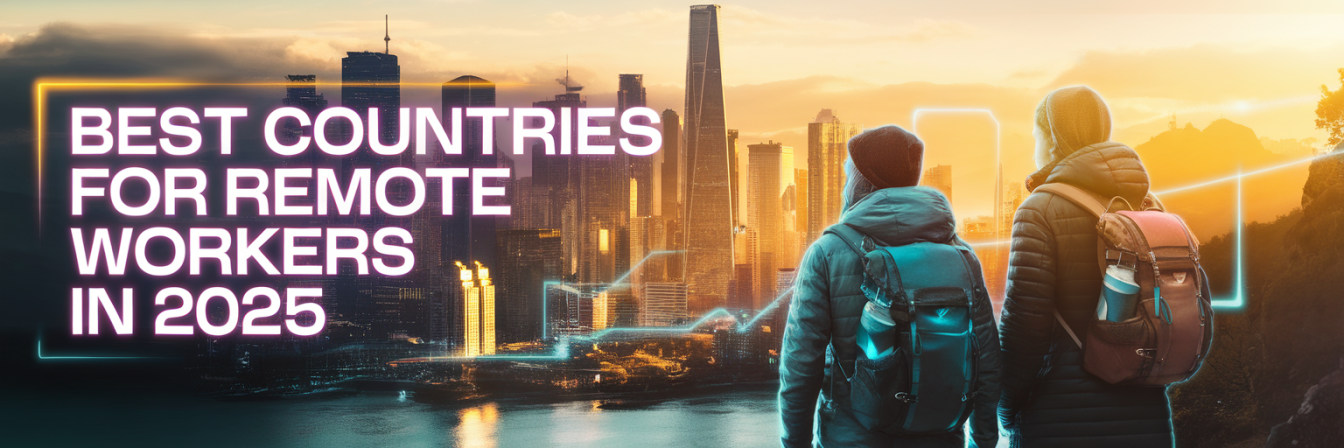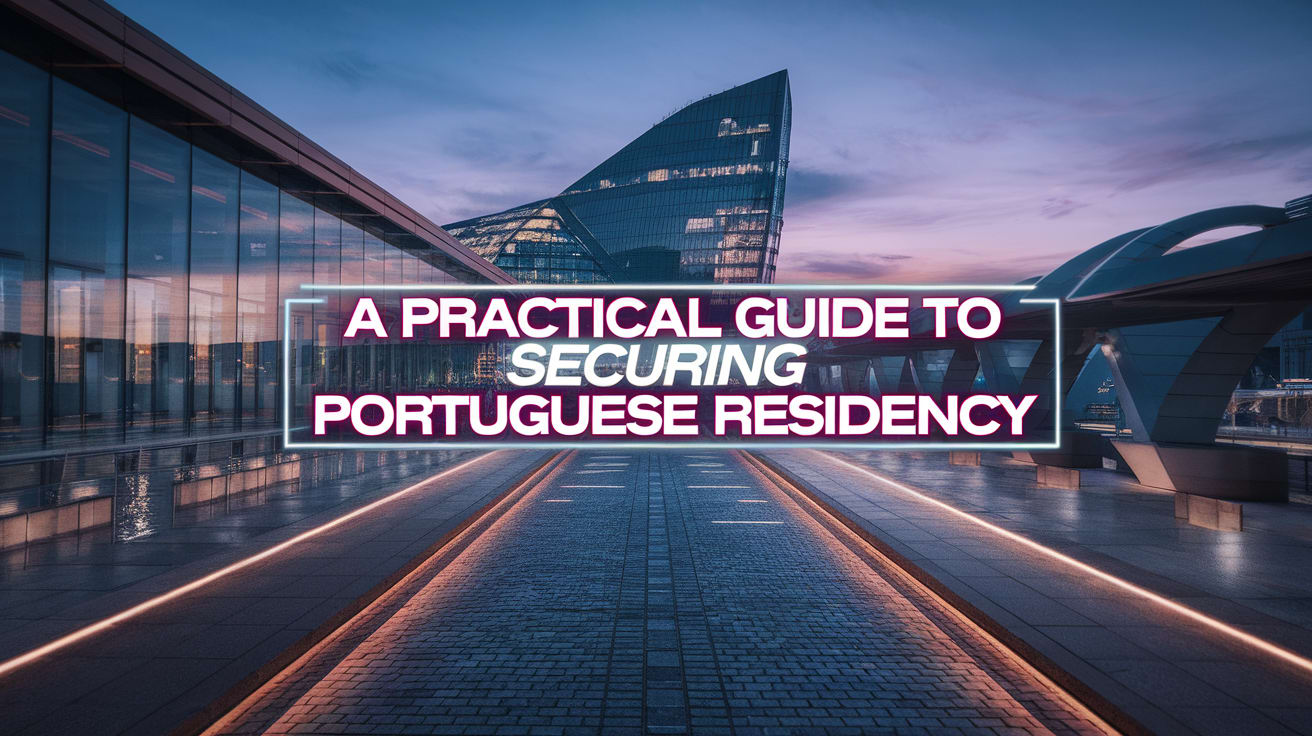Best Countries for Remote Workers in 2025
According to the BBC, the global shift towards remote work has permanently altered the landscape of international mobility, with dozens of countries now actively competing to attract a new class of lo...

The Ultimate Guide to the World's Best Countries for Remote Workers in 2025
Authority Insight: We grounded this article in guidance from Wikipedia and Bbc so every recommendation reflects the latest policy and on-the-ground expertise for Best Countries for Remote Workers in 2025.
According to the BBC, the global shift towards remote work has permanently altered the landscape of international mobility, with dozens of countries now actively competing to attract a new class of location-independent professionals. This isn't just a trend; it's a fundamental restructuring of how and where we work. For you, the digital nomad, freelancer, or remote employee, this means a world of opportunity has opened up. But it also means a world of complexity. The dream of swapping your cubicle for a beachfront café in Lisbon or a co-working space in Medellín is more attainable than ever, but navigating the maze of visas, tax laws, and cost-of-living differences can be overwhelming. In 2025, the game has changed again, with new visa programs launching and old ones being refined, making up-to-date information more critical than ever.

Your Roadmap to a Life Abroad
This guide is designed to be your definitive resource for choosing the perfect home base in 2025. We're cutting through the noise and the outdated blog posts to give you a clear, practical, and data-driven look at the top destinations for remote workers today. The "best" country is a deeply personal choice, dependent on your career, budget, lifestyle, and long-term goals. Are you a solo freelancer looking for the lowest cost of living, like many users on Nomad List? Or are you a high-net-worth individual with a family, seeking a long-term path to a second citizenship? The options available to you are vastly different. This year, we've seen countries not only roll out new digital nomad visas but also refine long-standing residency programs to appeal to a wider range of talent. We will explore these pathways, from straightforward temporary permits to more complex investment-based visas, ensuring you have the full picture.
In this comprehensive guide, you will learn:
- The Top 10 Countries for Remote Workers in 2025: A detailed ranking based on visa accessibility, cost of living, internet infrastructure, safety, and quality of life.
- Deep Dives into Visa Options: We'll break down the specific requirements, costs, and application timelines for the most popular digital nomad and long-stay visas.
- Financial and Tax Implications: A crucial overview of what to expect when managing your finances abroad, including common tax treaties and banking tips.
- Real-World Expat Insights: We'll share firsthand advice from people on the ground to help you understand the culture, community, and daily life in each location.
Understanding the Pathways: Visas vs. Golden Visas
Before we dive into the rankings, it's essential to understand the different legal avenues available for living and working abroad. The term "remote work visa" is often used as a catch-all, but the reality is more nuanced. For most digital nomads, the goal is a Digital Nomad Visa. These are temporary residence permits, typically valid for one to two years, designed for individuals who earn income from foreign sources. They generally require proof of a stable monthly income (usually between $2,000 and $5,000), health insurance, and a clean criminal record. Countries like Spain, Croatia, and Costa Rica have become famous for these accessible programs.
However, a different and often misunderstood option exists for individuals with significant capital: Residency by Investment (RBI), popularly known as a "Golden Visa." These programs are not designed specifically for remote workers but can be an excellent pathway for those who qualify. According to information from Wikipedia and immigration consultancies, these programs grant residency in exchange for a substantial financial contribution to the country's economy.
Portugal's Golden Visa program is a prime example. While its popular real estate investment option was discontinued in late 2023, the program has pivoted to new investment routes, solidifying its status as a top-tier option. Let's take a closer look at why this powerful pathway continues to attract high-net-worth professionals from around the globe.
Portugal: The Golden Visa Path to EU Residency

While many digital nomads seek out specific remote work visas, Portugal offers a more powerful, albeit capital-intensive, alternative: the Golden Residence Permit Program. This isn't your typical nomad visa; it's a residency-by-investment program. For high-net-worth individuals who also happen to work remotely, it's an unparalleled route to living in Portugal and gaining visa-free access to Europe's Schengen Area. After five years, it can even lead to permanent residency or a coveted Portuguese passport.
Requirements: Your Checklist for the Golden Visa
Qualifying for the Golden Visa is less about your monthly income and more about your ability to make a significant investment in the country. The process is detailed, but the requirements are straightforward.
Eligibility and Documentation
At its core, the program is open to non-EU/EEA/Swiss citizens. Here’s what you’ll need to prove:
- Citizenship: You must not be a citizen of the European Union, European Economic Area, or Switzerland.
- Age: You must be at least 18 years old.
- Criminal Record: A clean criminal record from your home country and any country where you've lived for more than a year is mandatory. You can typically request this from your local police or a federal authority, such as through the Portuguese Criminal Record Online Service for any time spent in Portugal.
- Health Insurance: Proof of valid health insurance that provides coverage in Portugal.
- Family: The program has generous family reunification rules, allowing you to include your spouse or partner, dependent children (including unmarried, full-time students of any age), and dependent parents.
Financial and Time Commitments
This is the most critical part of the application. As of 2025, the popular real estate investment option is no longer available, a policy shift reported by major outlets like the BBC as Portugal rebalances its economy. The current primary investment routes are:
- Investment Funds: A minimum investment of €500,000 in qualifying Portuguese-regulated venture capital or private equity funds. This has become the most popular route for investors.
- Cultural Heritage Donation: A contribution of at least €250,000 towards artistic production or the maintenance of national cultural heritage.
Understanding these requirements is the first step, but successfully navigating the application process requires strategic planning and insider knowledge. Let's move from the "what" to the "how" with a practical guide to securing your residency.

A Practical Guide to Securing Portuguese Residency

While many remote workers seek short-term digital nomad visas, Portugal offers a more permanent, albeit investment-heavy, solution: the Golden Residence Permit Program. This is not a typical work visa but a five-year residency-by-investment path for non-EU citizens with significant capital. It's the ultimate long-game for those who want to establish a solid foothold in Europe, leading to permanent residency or even citizenship after five years.
Expert Tips & Best Practices
Navigating the Golden Visa requires more than just capital; it demands strategic planning. The process can take anywhere from 8 to 18 months, so patience is key.
1. Choose Your Investment Wisely: Since the popular real estate option was removed in late 2023, the primary routes are now investment funds or cultural donations.
- Investment Funds (€500,000): This is the most common path. Don't just pick the first fund you see. Perform rigorous due diligence. Look for funds with a proven track record, transparent management, and a clear exit strategy. Your capital will be locked in for at least five to six years. Join communities like the Nomad Capitalist forum to discuss fund performance with other investors.
- Cultural Donation (€250,000): This is the lowest capital entry point, but it's a non-recoverable donation. It's best for those whose primary goal is residency, not investment returns. This option supports Portuguese arts and national heritage, which can be a personally rewarding path.
2. Master the Minimum Stay: The requirement is famously low: an average of just seven days per year (14 days over each two-year permit period). This is ideal for global remote workers. Plan a bi-annual trip to Portugal to meet the requirement, handle biometrics for renewals, and enjoy the country. Use a simple calendar reminder system to track your days in-country so you never fall short.
3. Start the Language Clock Early: To qualify for citizenship after five years, you'll need to pass an A2-level Portuguese language test. While basic, it's not something you can cram for in a month. Start learning casually from day one using apps like Duolingo or by hiring an online tutor. This small, consistent effort will pay massive dividends when it's time to apply.
Real-World Scenarios
Let's look at how two different remote professionals successfully used the Golden Visa.
Case Study 1: The Tech Founder (Family of Four) Sarah, a 42-year-old SaaS founder from the USA, wanted a stable EU base for her family without disrupting her children's schooling back home. She chose the €500,000 investment fund route.
- What She Did Right: Sarah hired a reputable Portuguese law firm to handle the entire application. They vetted several venture capital funds focused on technology, aligning the investment with her professional expertise. She submitted a clean application with all family documents (spouse and two children) bundled together, streamlining the process for everyone.
Further Reading & Sources
- En.Wikipedia.Org – Portugal
- En.Wikipedia.Org – Travel Visa
- Bbc.Com – News
- En.Wikipedia.Org – Golden Visa
- Duolingo.Com
- Getgoldenvisa.Com – Portugal Golden Visa Program
- Globalresidenceindex.Com – Portugal Golden Residency
- Nomadgate.Com – Portugal Golden Visa Guide
- Portugalcitizenship.Org – Portugal Golden Visa
- Portugalpathways.Io – Definitive Guide For Portugals Golden Visa In 2025
- En.Wikipedia.Org – Portugal Golden Visa
- Henleyglobal.Com – Portugal
- Getgoldenvisa.Com – Constitutional Concerns Surround Portugals Citizenship Proposal
- Wise.Com – Portugal Golden Visa
- Goldenvisas.Com – Portugal
Final Reminder: Stay compliant with digital nomad visa countries 2025 to protect your move.